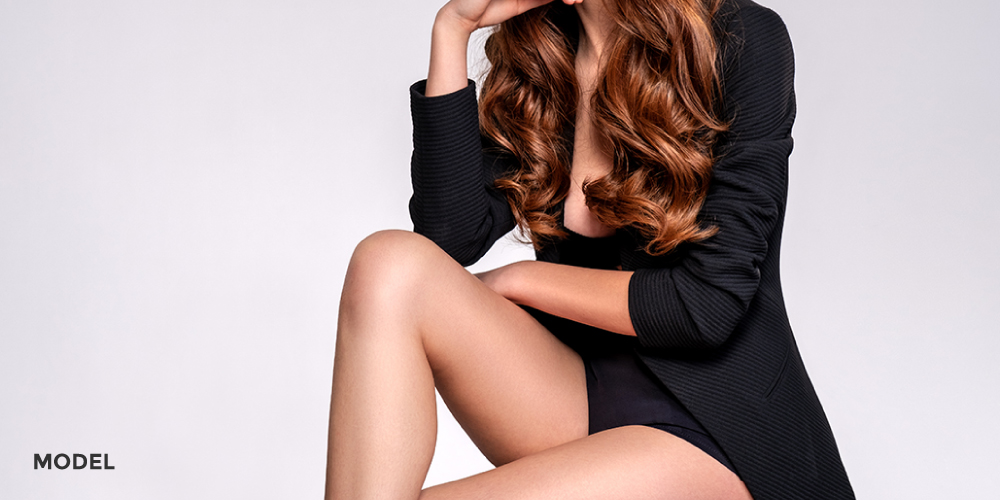


 Dr. Evans understands that many women are embarrassed, shy, or uncomfortable about discussing certain private topics with others—even their gynecologist. But one of the most damaging things women can do is shy away from learning more about their bodies. It is important to understand how your body works, what your vagina should look like, how sex should feel, and what is considered to be abnormal when it comes to women’s health.
Dr. Evans understands that many women are embarrassed, shy, or uncomfortable about discussing certain private topics with others—even their gynecologist. But one of the most damaging things women can do is shy away from learning more about their bodies. It is important to understand how your body works, what your vagina should look like, how sex should feel, and what is considered to be abnormal when it comes to women’s health.
To help, we have put a list of questions together that many women may be too shy to ask. Hopefully, this encourages you to find the confidence to speak one-on-one with your gynecologist.
1. Should I be experiencing pain in my vagina during sex?
The quick answer to this question is, no! Consistent pain during sex is not a normal feeling to experience. Dr. Evans wants all of her patients to enjoy their sex lives, and unwanted pain is certainly not part of that. While your discomfort will most likely be easily resolved with some simple changes, be sure to talk to Dr. Evans about the pain you have, and don’t be shy when you tell her about it. She will need to know as much as possible in order to know exactly how to help you get back to enjoying sex without pain!
2. Is my menstrual cycle normal?
If this is a question you are having later in life—after experiencing years of menstrual cycles—and you have started to notice a change, be sure to talk to Dr. Evans and tell her about the changes you have seen. While no two women experience the same type of period, and your cycle can vary from month to month, there is a chance your fluctuating hormones are the cause of changes in your menstrual cycle.
The hormones estrogen and progesterone control your menstrual cycle, and when there are changes in these hormones, you could experience changes in your period. As a recognized physician in this area, Dr. Evans can guide you through your options and help you understand what to expect with specialized treatment.
3. Does my vagina look normal?
Every vagina looks different. There is no “normal standard” to its appearance, so your healthy vagina is unique to you. But if your vagina has changed over time due to age or childbirth and you’re worried about its appearance, talk to Dr. Evans. She specializes in vaginal rejuvenation and can improve the aesthetics of your vagina, so you can be confident in your most intimate moments with your partner.
4. Why does my vaginal discharge smell?
The vagina will almost always smell different at times in our life. It is when the odor of the discharge changes that could signal a problem. Depending on sexual or other habits, changes in the smell of your vaginal discharge could be the cause of an infection or an STD.
If you have noticed changes in the smell of your vaginal discharge, don’t be too shy to talk to your local gynecologist. She can develop a treatment plan that will help you be good as new and back to enjoying your sex without the embarrassing odor.
5. Why have I never achieved orgasm?
Unfortunately, not all women can achieve orgasm easily—and sadly, some have never experienced this sensation with their partner. But don’t lose hope! The truth is that almost everyone can learn how to enhance their orgasm. And Dr. Evans isn’t called the “orgasm doctor” for nothing—she knows just how to help you reach new heights. She has spent her career helping women and men resolve their sexual dysfunction to feel sexier and live happier.
6. Why do I have a low sex drive?
As a doctor highly knowledgeable in sexual health, this question is one Dr. Evans hears very often, even though it can be uncomfortable for some patients to ask. A low sex drive can be caused by many things, including hormones, stress, or medication. However, sometimes women lose interest in having sex with their partner. This is often seen between couples who have been together for many years. After the same old, week after week, and year after year, many women get bored.
If you find that your low sex drive is due to a lack of interest or boredom, consider talking to your partner about how the two of you can work together to spice things up. Maybe read a Kama Sutra book or two, go on an intimate getaway alone together, or talk to Dr. Evans about different recommendations she has to help boost your sex drive.
Regardless of the reason for your low sex drive, when you talk to Dr. Evans, be open and honest with her so she can help identify where the problem lies and help you get back to wanting intimacy with your partner again.
7. Can you shorten my labia?
Age and childbirth can be unkind to a woman’s vagina, and some women eventually experience a change in the size and shape of their labia. Labia that are too long can cause discomfort and irritation for patients during their normal daily activities or during sex. But even if your labia does not cause you discomfort, you can still talk to Dr. Evans about how she can shorten your labia via labiaplasty to improve the aesthetics of your vagina and boost your self-confidence.
8. How can I tell if I have an STD?
This is an important question, as knowing how to identify a problem can help lead to better outcomes from treatment. While some patients will be exposed to an STD and not have typical symptoms, most often, you will notice changes to the appearance and smell of the vagina when an STD is present.
If you think you may have an STD, don’t hesitate to consult with Dr. Evans. Prioritizing safety and seeking treatment as soon as possible is advisable instead of delaying.
9. I am going through menopause, and my hormones are out of control. Can you help?
Many women in the midst of menopause understand the need for balance. Their hormones are completely out of whack. They feel tired, disconnected, and moody. They experience hot flashes and cold sweats. Their sleep is disrupted, and they feel altogether unlike themselves. This season of life does not have to be difficult! Talk to Dr. Evans about hormone replacement therapy and start feeling like yourself again.
10. Can I have sex during my period?
While it may be messy, you can have sex around the time of your period. Dr. Evans recommends preparing the space with towels or extra sheets to avoid stains, but there is no clinical reason why you should not have sex during your menstrual cycle. In fact, many of Dr. Evans’ patients choose to have sex during this time because it offers an exceptionally low risk of pregnancy. However, the other side of that coin is that it may not be as comfortable for you, as your vagina is slightly swollen during your period.
11. Is anal sex safe?
One specific topic about sex that Dr. Evans finds patients are a bit shy about is anal sex. Many people aren’t sure if it’s safe or if they could end up with infections or damage from engaging in this type of sexual pleasure.
It’s important to know that any time you have sex, there is some risk of infection—whether you’re having oral sex or traditional sex. If you are considering anal sex with your partner, be sure to wash your body with soap and water beforehand and wear a condom. It’s also important to pick one area and stick with it until you reach orgasm. Avoid moving from the anus to the vagina or vice versa; and use condoms. Not doing it could increase your risk of infection.
12. What can I do to help my man last longer during sex?
The key to helping your man last a bit longer during sex is to first know how to realize when he’s getting close to orgasm. If you’ve been having sex for a long time, you might recognize certain actions or behaviors that could help you identify when he might be getting close. You could also consider asking him to let you know when he’s getting close so the two of you can make adjustments during sex. When you are more aware of what might cause him to reach orgasm quickly, the two of you can work together to change positions, slow things down, take a break, or even ask him to focus on pleasing you to extend your time together in bed.
Infographic: ’12 Questions to Ask Your Gynecologist’
Share this Image On Your Site
Call Dr. Evans at Sugar Land Medical Spa Today!
No question is too embarrassing to ask Dr. Evans. She believes in educating her patients about their sexual health and wellness, and she will always provide a safe, friendly environment for you to ask any question you have. Don’t be shy! She is here for you!
If you’re ready to schedule an appointment with Dr. Evans, don’t hesitate to call her office in Houston today at (281) 277-7721 today!






